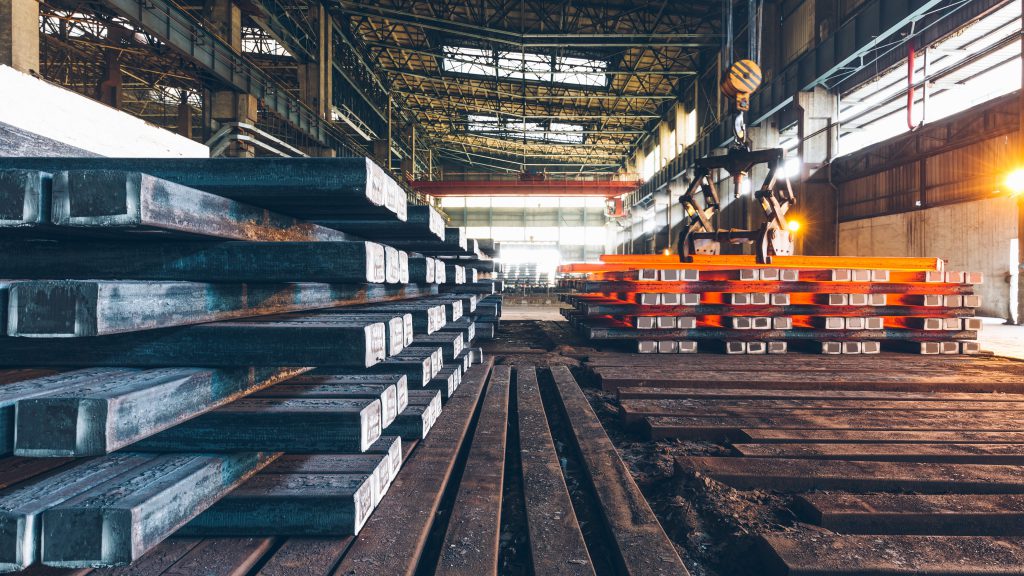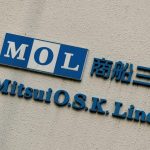Iron ore prices have rallied despite flagging steel demand from the ailing Chinese property sector as Chinese mills maintain output in the absence of a firm government production cap and replenish low inventories of the raw material.
The rising prices are a boon for global miners such as Vale and BHP and bolsters BHP’s view from last week that China, the world’s biggest iron ore consumer and steelmaker, will still produce more than a billion tons of steel this year.
The surge runs counter to recent lackluster Chinese economic data and is occurring even as companies in the property sector, the biggest steel end-users, contend with debt and cash flow issues.
The most actively traded iron ore futures contract on the Singapore Exchange has climbed by 13.5% in the two weeks to Aug. 25 with physical prices for ore delivered to China rising by a similar amount.
The September SGX future hit a one-month high of $114.85per metric ton on Aug. 24, before easing back to $112.27 a ton on Monday.
Most Chinese steel mills are maintaining normal production ahead of a still-awaited government order to cut output so they can keep generating cash flow and lock in profits, which is supporting ore demand, according to analysts.
Mills are also relying more on hot metal, a steel precursor, that consumes more iron ore since scrap steel is in short supply amid the property slowdown.
“The trigger for (the price rally) is the easing expectation that a nationwide steel production cap will come any time soon. But the underlying driving factors are unusually high hot metal output and low inventories at a time of seasonally slow demand,” said Pei Hao, a Shanghai-based senior analyst at international brokerage FIS.
Beijing has so far not imposed any curbs on annual steel output, breaking with moves made the past two years to limit carbon emissions, although some mills received verbal instructions.
Even before the recent rally, iron ore was supported by China’s unusually high output of hot metal, an intermediary steel product from blast furnaces that in its liquid form goes straight to manufacturing steel but when cooled into ingots is typically referred to as pig iron.
“Hot metal output is a key indicator. As long as there is no big reduction in the number, iron ore consumption will be sustained, lending support to prices,” said FIS’ Pei.
LOW INVENTORIES
Low iron ore inventories at mills and ports are also propping up prices, say analysts. Steel mills have reduced their stocks since the second half of 2022 to conserve cash.
Imported iron ore inventory among 247 Chinese steel mills was 85.39million tons on Aug. 25, down 13.5% from a year earlier, data from consultancy Mysteel showed.
Iron ore inventory at major Chinese ports SH-TOT-IRONINV has fallen to 118.6million tons as of Aug. 25, down 15.5% from a year ago, according to consultancy Steelhome.
With low inventories, steelmakers must buy in the spot market to meet their needs, supporting prices with strong near-term demand.
“Some steel mills topped up their inventories from the spot market, lending a hand in iron ore prices,” said Tomas Gutierrez, head of data at UK-based consultancy Kallanish Commodities.
FURTHER PRESSURE
The momentum might not last though. In addition to the protracted property slump taking a toll, the rising iron ore prices have cut profit margins for mills.
“The unexpected magnitude of the iron ore price rally has squeezed steel margins greatly,” said a purchasing manager at a large Chinese steel mill.
“One month ago, some mills could still make a gross profit of between 400 yuan ($54.87) and 500 yuan per ton, but right now, most mills are struggling with even generating a profit,” he added.
Source: Hellenic Shipping News





